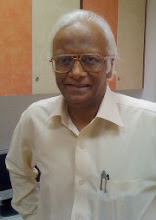GOOD BUDGET FOR BAD TIMES
SUNNY
THOMAS
Peeling
the budget onion live, three things emerge: numbers, survival, and nation! All
budgets are about numbers, but Pranab Dada’s numbers strike a different stroke.
They are about the number of numbers rather than the numbers per se. (In a
democracy, the number of votes in Parliament matters more than the numbers un
the budget). So without politics, the budget makes no sense; and, in fact, what
gives economics its pre-eminence is the politics (popularity) behind it. After
nuclear science, economics has emerged as the most sought-after discipline, and
good economists are sought after by presidents and prime ministers the world
over. Dada’s numbers in reality reflect the political composition of the Indian
parliament.
Homo
sapiens display their elements when threatened as a species, or even as a
political party or as individuals. The budget has something for each of its
allies, in hope or in reality, that the general mood among them is one of optimism.
After all, national politics is all about dividing the cake among the
stakeholders.
Thinking
about the nation, the first thing that comes to our mind is the bravado of the
one and only Dinesh Trivedi, ex-Railway minister: The nation comes first, the
family second, and the party third. The statement has a ring of greatness, as
Caesar’s `I went, I saw, I conquered!’ or Napoleon’s `The word impossible is
found only in the dictionary of fools’ or Kennedy’s `Therefore my countrymen,
Do not ask what the country can do for you, but always ask, what you can do for
the country’.
Notwithstanding his greatness, the
man just disappeared like a ticketless traveller as the ticket examiner appeared
in the compartment. The ticket examiner was, of course, Mamata Banerjee in
Delhi! (Seeing what happened, a friend suggested that the National School of
Drama should be shifted from Delhi to Kolkota since all the actors of this
drama, Dada, Didi and Vedi, hail from the same state).
The wisdom of this Grand Old Man,
Pranab Mukherjee, is reflected in his budget because he found time to think of
the nation and the economy even while sitting in an uneasy chair. But the
budget would always be anti-people for CPM and directionless for BJP because
the only person who can give a sense of direction is Narendra Modi! Every TV
channel has budget prophets who ``sitting in the same studio last year forecast
the budget deficit’’ proving the finance minister wrong all the time!
The one criterion to judge any
budget is the question, `Are the numbers credible?’ Dada’s numbers are mostly
credible and where they tend to err is on the window-dressing side, which is
the prerogative of every finance minister to project optimism rather than the
ground reality. The finance minister’s optimism is as much important to the
economy as that of the investors on the stock market.
Perhaps the best analysis of the
budget came from two outstanding citizens, Chanda Kochhar, CEO, ICICI Bank, and
Kumara Mangalam Birla, chairman of the Aditya Birla Group. They indeed merit
our time and enlighten us on the intricacies of the craft.
Kochhar: The budget is a pragmatic exercise
aimed at growth and stability in the backdrop of the challenging year gone by
and the broad consensus needed for various policy measures. Given the fiscal
imperatives, it goes further to set a direction for fiscal consolidation to
ensure long-term stability and sustainability of the growth momentum in the
economy.
Fiscal 2012 has been a challenging
year for the Indian economy. Both global and domestic factors resulted in a
moderation of economic activity, led to persistent inflationary pressures and
contributed to a deterioration in the current account and fiscal position.
Birla: The finance minister has presented
a credible and prudent budget. This is commendable, considering the multiple
headwinds, by way of anaemic global recovery, persistent high oil prices, lower
than budget tax revenues, sharp movements in rupee exchange rate and stubborn
inflation during much of the year, resulting in high interest rates. The
compulsion of managing a coalition government, no doubt, has narrowed policy
option.
Despite
these negatives, the budget ends up as being pragmatic. It aims to rev up GDP
growth from 6.9% in 2011-12 to 7.6% in 2012-13. This would be lower than the
8.4% GDP growth in the preceding two years. The budget also seeks to contain
the fiscal deficit at 5.1% of GDP, down from 5.9% last year. Clearly, a fine balance is sought to be
struck between the twin imperatives of growth and fiscal soundness.
After reading Kochhar and Birla, both
practitioners and high achievers, you tend to discount tons and tons of trivia
aired or printed as expert comments. God save our experts! But don’t forget the
Indian economy was the first to come out of the global meltdown and India,
along with China, holds the key to hedge a second global meltdown!


No comments:
Post a Comment